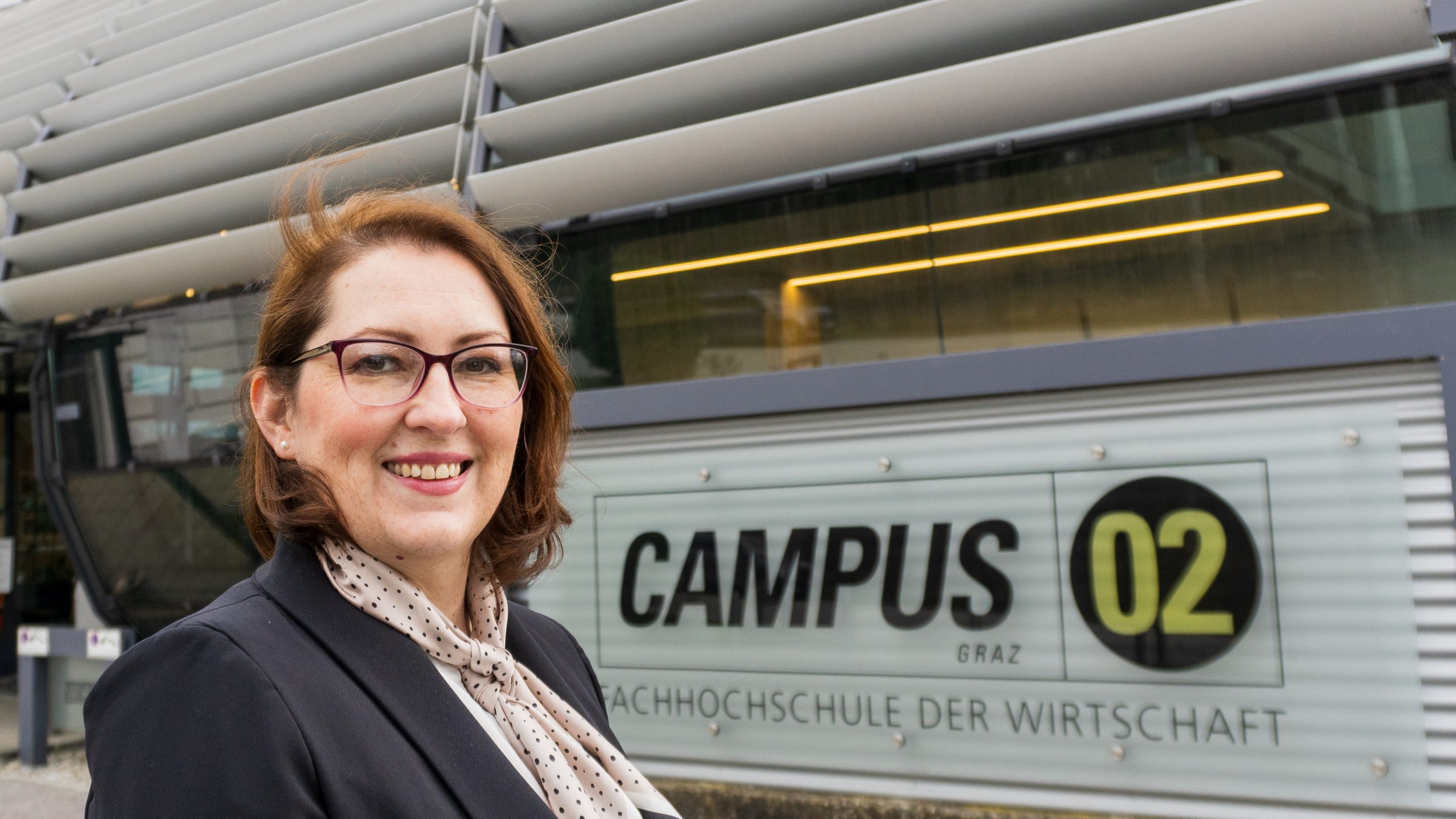CURRENT RESEARCH AND INNOVATION TRENDS IN AUSTRIA: MY CAMPUS 02 POST-DOC STORY
Author: Dr. Ivana Krsmanović
If you are an EU researcher and you are looking for excellent research infrastructure – you should come to Austria! Here’s a story about me finding my research campus – CAMPUS 02!
Back in 2022, when I got the idea that I could apply for the Joint Excellence in Sciences and Humanities Scholarship generously supported by the Austrian Academy of Sciences, I knew that I wanted to come to Austria. I had already been to Graz through CEEPUS mobilities, and over time, I succeeded in establishing a small, but sustainable network of like-minded colleagues, who, as time would show, were people of academic integrity and mutual trust. The only dilemma I was faced with at that moment was: is it possible to do small-scale research at a university of applied studies, in which, per definition, humanities could be perceived as a limitation, in terms of scope? I decided to give it a try.
I wanted to write an application demonstrating a strong intellectual promise and robust, innovative potential, aiming to back up my ideas with relevant, cutting-edge evidence. As a person who knows “the tricks of the trade”, I decided to “do my homework”: I meticulously read the Austrian Research and Technology report for 2021 searching for specific information. Not surprisingly, the report pinpointed that, based on the available data and in terms of current research conditions, Austria ranks as one of the most desirable places for researchers from both EU and non-EU countries.
#How it started
Besides focusing on universities and institutes, as key components of Austrian research and innovation, this report also illuminated several key priorities related to the universities of applied sciences for their further research promotion and innovative positioning. In that sense, the Federal Ministry of Education, Science and Research (BMBWF) launched a broad-based participatory process, and, among the core directives, several were highlighted – internationalization of the research teams, promotion of non-traditional and innovative forms of partnerships and mobilities, inclusivity of under-represented groups. Technology transfer and exploitation at the universities of applied sciences were also clear goals, as stated in the measures.
Finally, the report stated that universities of applied sciences should take an application-oriented approach to teaching and research, their core areas of expertise, because at these institutions, research not only helps to generate knowledge but also provides new insights while potential tangible applications are also being conceived to create innovative products and services. To my unwavering delight, one of the universities listed in the report was FH CAMPUS 02, University of Applied Sciences. Not only did I prioritize CAMPUS 02 in my application, but I also addressed the constraints that middle-career researchers often face when applying for various post-docs, such as explaining a career trajectory or finding the right fit, which, if I may, all sometimes make mid-career researchers look either overqualified or with gaps in their skillsets. Generally speaking, potential-wise, the goal of the JESH Postdoctoral Fellowship was to enhance the creative and innovative potential of middle-career researchers, wishing to diversify their competence in terms of skill acquisition through advanced training and international mobility. In that way, the fellowship would also promote the career restart of promising researchers who show great potential. This might work well, I thought. The newly established Center for Teaching Excellence at CAMPUS 02, expertly led by Dr Dagmar Archan, responded positively to my invitation to collaborate on the proposal. Six months after submission, our proposal was approved.
#How it’s going
Now, that I am at the beginning of my Research stay at CAMPUS 02, I decided to check how much of the prior statistics on Austrian research have changed. To the best of my knowledge, and based on available statistical data, not much. Austria still stands out as a highly sought-after destination for researchers coming from both EU member states and beyond.
Needless to say, the Federal Chancellery of the Republic of Austria timely introduced the RTI Strategy 2030 (back in 2020), intending to position Austria as a leading research, technology and innovation country by systematically addressing societal challenges in the post-pandemic EU. The shift to the Austrian “new normal” in terms of research and innovation has been confirmed by the recording of 3.22% of research intensity, estimated for 2023, and higher than ever before. According to the analysis, Austria is in third place behind the long-time leader Sweden (3.36%) and Belgium (3.22%), but continuously improving ranks since 2019. What is more, 10 times in a row, Austria has been above the European target value of 3% (source: RTI Report 2023). Not much commentary is needed here – surpassing the European target value of 3% for ten consecutive years underscores Austria’s sustained commitment to excellence in research and innovation. Sustainable research, which includes not only the effectiveness of research policies but also the longevity of research practice might be the new phrase coined for the “case of Austria”.

Figure 1. RTI Report 2023 Highlights
Next, the goal formulated in RTI Strategy 2030 of the Austrian research and innovation sector being among the top 10 in the realm of ERC grants was again confirmed with third place in 2023. Interestingly, Austria’s success rate is significantly higher in ERC than in the predecessor program Horizon 2020 and just above the EU average of 22%. Besides companies, it needs to be mentioned, higher education institutions and non-university research institutions were also the most significant contributors to Austria’s success in Horizon 2020.
Finally, of particular significance is Austria’s leadership in the Internet of Things adoption among businesses. Regarding the indicators in the areas of Artificial Intelligence, the Internet of Things and quantum technology, Austria is above the EU average in each. What is more, in Austria, about every second company used IoT in 2021 (51%), making Austria first in the EU. The industrial leadership pillar firmly remains the domain of Austria’s EU influence. Sustainable ecosystem? Indeed.
To conclude, what a careful observer might notice is that, from a holistic perspective, by integrating sustainability principles into its research and innovation agenda, Austria is both enhancing its competitiveness and also contributing to the broader EU goals of creating a prosperous future for all. And what’s even better? They’re not just focused on short-term gains. To put it bluntly, Austria isn’t just playing “the research and innovation game” – they are dominating it. And, it is not merely about outshining the competition; it’s about paving the way for a future where everyone wins. Indeed, (risking that it might be interpreted wrong), “No researcher left behind” could rightly be seen as a motto underscoring the inclusivity of the Austrian research policy. Its true value is best found in its capacity to offer innovative initiatives viewed through the multiplinarian lens, within the wide range of research scopes and diverse educational fields. Crucially, it is worth noting that universities of applied sciences have a fair share in the Austrian research landscape, and that their role in the overall research and innovation potential cannot be neglected.
#How it will end
Under the mentorship of Dr Dagmar Archan, the Head of the Center for Teaching Excellence and an accomplished English lecturer, my post-doc stay has proven to be both engaging and profoundly inspiring. The proposed project we are collaboratively working on centres around improving the instruction of English for specific purposes in a hybrid teaching setting, by designing a set of instructional strategies based on the Community of Inquiry (CoI) model. Upskilling of English language instructors in digital competences and their training in how to establish successful online learning communities appear as important as any other training in teacher pedagogy. We eagerly await the first research results.
To fellow researchers interested in conducting research in Austria – I extend an invitation to all of you to channel your potential towards fostering inclusive environments within Austrian research institutions. Just search for the right “campus”. I wish you the best of luck!
#THANK YOU NOTES
I wish to express my heartfelt gratitude to Dr Dagmar Archan and FH CAMPUS 02 Graz for generously providing the resources essential for conducting this research. Their unwavering support serves as a testament to their commitment to academic excellence and innovation.
A big thank you to Joint Excellence in Sciences and Humanities (JESH) and the Austrian Academy of Sciences for their contribution to nurturing scientific thought beyond borders.
Dr Ivana Krsmanović, professor of applied studies
University of Kragujevac, Serbia
Faculty of Technical Sciences Čačak
#campus02 #jesh #austrianacademyofsciences #graz #researchandinnovation #austria
Resources cited:
- RTI Report 2023: https://www.bmk.gv.at/en/topics/innovation/publications/technology_reports.html
- RTI Strategy 2023 https://www.bundeskanzleramt.gv.at/themen/forschungskoordination_fti.html .
- RTI Report 2021 https://www.bmk.gv.at/en/topics/innovation/publications/technology_reports.html
- JESH, Joint Excellence in Sciences and Humanities https://www.oeaw.ac.at/foerderungen/joint-excellence-in-science-humanities
About the author
Dr. Ivana Krsmanović is a professor of applied sciences affiliated with the Faculty of Technical Sciences Čačak, University of Kragujevac, Serbia, where she also holds the position of Head of the Department for Humanities and Social Sciences. She is a recipient of the prestigious Joint Excellence in Sciences and Humanities (JESH) scholarship (2023), awarded by the Austrian Academy of Sciences. Dr. Krsmanović’s scholarly pursuits focus on English as a Foreign Language (EFL) instruction, Computer-assisted language learning, and Digital Humanities.

